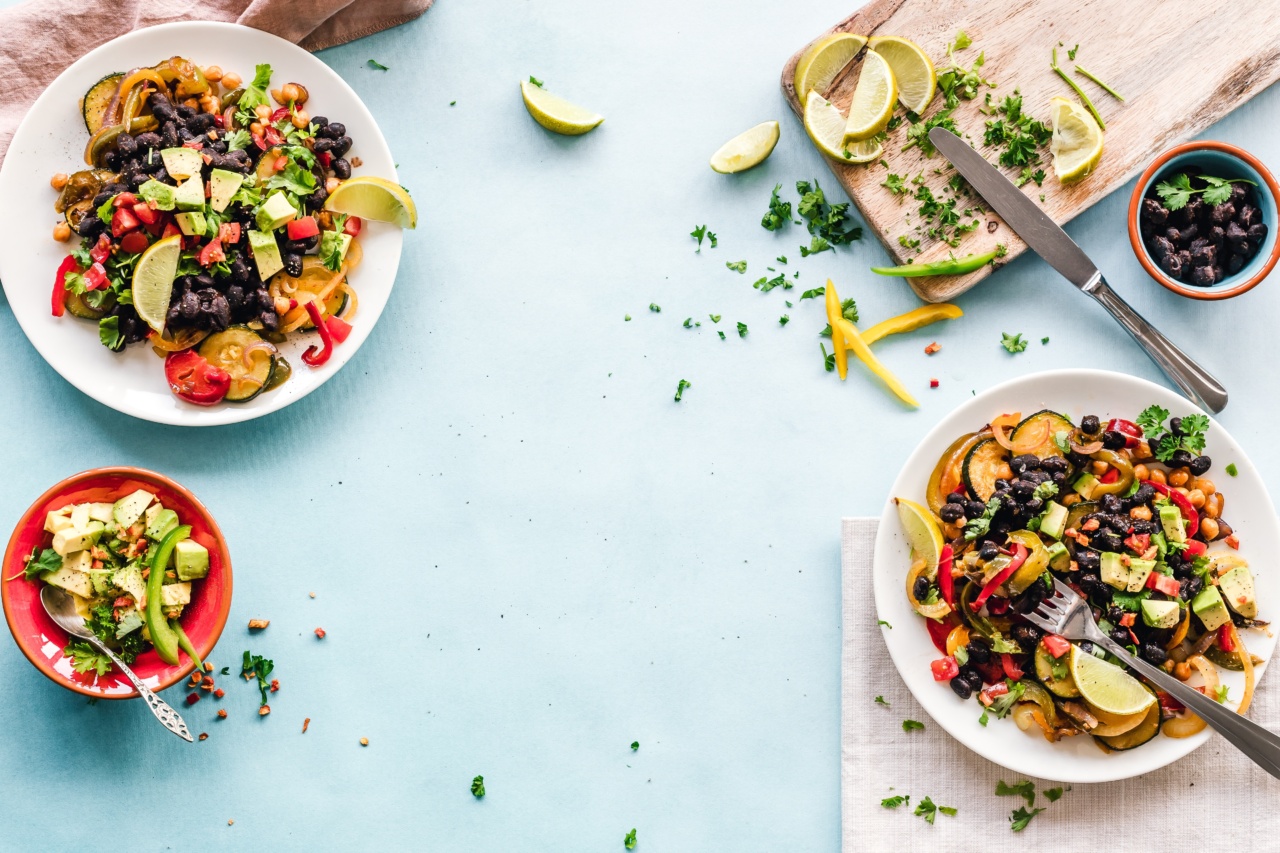Switching to a vegetarian diet involves more than just giving up meat. It’s a lifestyle choice that requires planning, research, and knowledge on how to get the nutrients your body needs.
If you’re thinking about going vegetarian, here are 30 things you should know:.
1. Reasons for Going Vegetarian
People decide to go vegetarian for various reasons. Some do it for health reasons, while others do it for environmental or animal welfare reasons. Whatever your reason may be, it’s important to know why you want to do it.
2. Types of Vegetarian Diets
There are different types of vegetarian diets, including lacto-ovo, lacto, ovo, and vegan diets. Lacto-ovo vegetarians consume dairy products and eggs, while lacto vegetarians consume dairy products but avoid eggs.
Ovo vegetarians consume eggs but avoid dairy, and vegans avoid all animal products.
3. Protein Sources
Meat is a significant source of protein, and many people worry that a vegetarian diet may not provide enough protein. However, there are plenty of plant-based sources of protein, including tofu, lentils, beans, nuts, and seeds.
4. Nutrient Deficiencies
Vegetarians may be at risk of nutrient deficiencies, such as vitamin B12, iron, and calcium. It’s important to include foods rich in these nutrients or take supplements to ensure you’re getting enough.
5. Meal Planning
Planning your meals in advance can help ensure you’re getting all the nutrients you need. Make sure to include a variety of fruits, vegetables, grains, and protein sources in your diet.
6. Eating Out
Eating out as a vegetarian can be challenging, but many restaurants offer vegetarian options. Before dining out, check the menu online or call ahead to see what options are available.
7. Cooking Tips
Cooking vegetarian meals requires different techniques and ingredients than cooking meat-based meals. Invest in a few vegetarian cookbooks, experiment with new ingredients, and learn a few cooking techniques to make your meals more interesting.
8. Convenience Foods
There are plenty of convenience foods that are vegetarian-friendly, including canned soups, frozen vegetables, and veggie burgers. However, not all convenience foods are healthy, so make sure to read the labels and choose wisely.
9. Social Support
Going vegetarian can be challenging, especially if you don’t have support from friends and family. Join a vegetarian club or online community to find support and share your experiences with others who have gone through the same lifestyle change.
10. Gradual Transition
Going vegetarian overnight can be challenging for some people. Consider making the transition gradually by eliminating meat from one meal a day or one day a week until you’re fully comfortable with a vegetarian diet.
11. Fiber Intake
Vegetarian diets are typically high in fiber, which can help reduce the risk of chronic diseases. However, too much fiber can cause digestive issues, so make sure to increase your fiber intake gradually and drink plenty of water.
12. Carb Intake
Vegetarian diets tend to be higher in carbs than meat-based diets. However, this doesn’t mean you should load up on processed carbs. Choose complex carbs, such as whole grains, fruits, and vegetables, to ensure a balanced diet.
13. Mindful Eating
Mindful eating is a practice that involves paying attention to what you eat and how you feel. Take time to savor your food, chew slowly, and listen to your body’s hunger and fullness cues.
14. Animal-Derived Ingredients
Many foods and products contain animal-derived ingredients, such as gelatin, which is made from bones and skin. Make sure to check labels and do your research to avoid animal-derived ingredients.
15. Nutritional Yeast
Nutritional yeast is a popular ingredient in vegetarian and vegan diets. It’s a good source of protein, vitamin B12, and zinc, and can be used to add a cheesy flavor to dishes.
16. Vitamin D
Vitamin D is an important nutrient that plays a role in bone health, immune function, and mood. Vegetarians may be at risk of vitamin D deficiency, which is why it’s important to get enough sunlight or take supplements as needed.
17. Omega-3 Fatty Acids
Omega-3 fatty acids are essential for brain health and reducing inflammation in the body. Vegetarian sources of omega-3s include flaxseeds, chia seeds, and walnuts.
18. Iron-rich Foods
Iron is an important mineral that plays a role in oxygen transport in the body. Vegetarians may be at risk of iron deficiency, which is why it’s important to consume plenty of iron-rich foods, such as leafy greens, nuts, and beans.
19. Calcium-rich Foods
Calcium is essential for bone health, muscle function, and nerve transmission. Vegetarians can get calcium from dairy products, fortified plant-based milk, tofu, and leafy greens.
20. Zinc
Zinc is a mineral that plays a role in immune function, wound healing, and DNA synthesis. Vegetarian sources of zinc include nuts, beans, tofu, and whole grains.
21. Vitamin B12
Vitamin B12 is essential for nerve function and DNA synthesis. Vegetarians may be at risk of vitamin B12 deficiency, which is why it’s important to include fortified foods or supplements in your diet.
22. Vitamin C
Vitamin C is an antioxidant that plays a role in immune function and collagen synthesis. Vegetarians can get vitamin C from fruits and vegetables, such as citrus fruits, kiwi, and bell peppers.
23. Vitamin E
Vitamin E is an antioxidant that helps protect cells from damage. Vegetarian sources of vitamin E include nuts, seeds, leafy greens, and oils.
24. Folate
Folate is a B-vitamin that plays a role in DNA synthesis and cell division. Vegetarian sources of folate include leafy greens, beans, and fortified grains.
25. Fermented Foods
Fermented foods, such as sauerkraut, kimchi, and yogurt, contain probiotics that can help improve gut health and boost immunity.
26. Environmental Impact
Switching to a vegetarian diet can have a positive impact on the environment by reducing greenhouse gas emissions, conserving water, and reducing deforestation.
27. Animal Welfare
Many people switch to a vegetarian diet to reduce their impact on animal welfare. By avoiding meat, you’re reducing the demand for factory farming and the mistreatment of animals.
28. Protein Supplements
If you’re having trouble getting enough protein from plant-based sources, you may want to consider protein supplements, such as soy protein powder or pea protein powder.
29. Benefits of Vegetarianism
There are many benefits to a vegetarian diet, including reduced risk of chronic diseases, improved gut health, and greater environmental sustainability.
30. Enjoyment
Switching to a vegetarian diet should be enjoyable! Experiment with new recipes, try new foods, and enjoy the many delicious vegetarian options available.



























